DUP deal: What exactly is in the Safeguarding the Union paper?
- Published
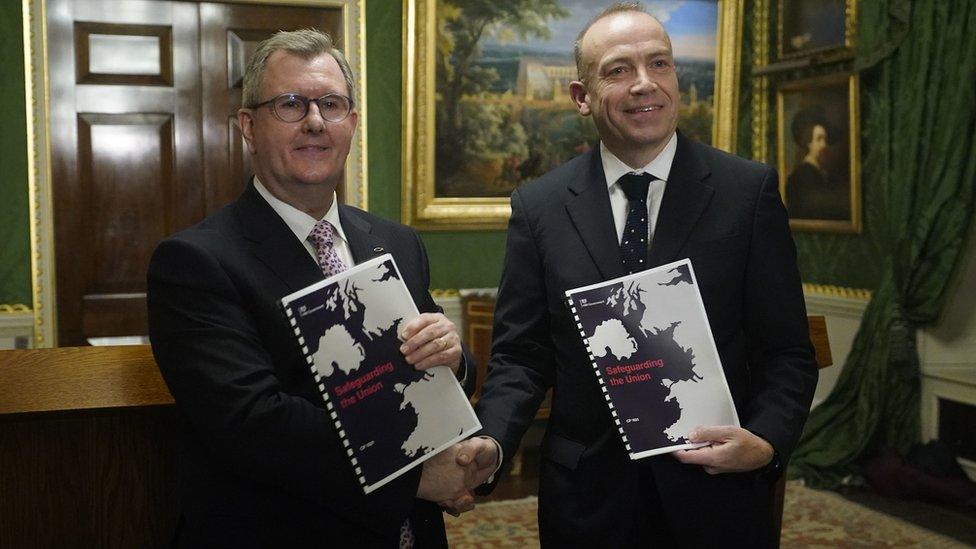
Sir Jeffrey Donaldson and Chris Heaton-Harris spoke to the media at Hillsborough Castle on Wednesday
It is a deal that was kept as a closely-guarded secret between the UK government and leadership of the Democratic Unionist Party (DUP).
The DUP had demanded changes to the way Northern Ireland trades with Great Britain to ease its concerns over post-Brexit rules and the Irish Sea border.
On Wednesday the 76-page agreement was published by the government.
It lays out several new measures aimed at simplifying domestic imports and encouraging trade between GB and NI.
Entitled Safeguarding the Union, external, the command paper was presented to Parliament by the Secretary of State Chris Heaton-Harris.
What will it mean for Irish Sea border goods checks?
Most significantly, the DUP's deal with the government will reduce checks and paperwork on goods moving from the rest of the UK into Northern Ireland.
It means there would no longer be "routine" checks on GB goods which are sent to Northern Ireland with the intention of staying there.
Those changes involve the maximum flexibility allowed under a previous EU/UK deal.
It is understood the move will be acceptable to the EU.
On Tuesday the UK and EU Joint Committee reached agreement to make changes to that previous deal to allow Northern Ireland to benefit from UK Free Trade Agreements.
The UK government will also introduce two pieces of legislation to guarantee Northern Ireland goods can be sold in GB in all circumstances and to affirm Northern Ireland's place in the UK.
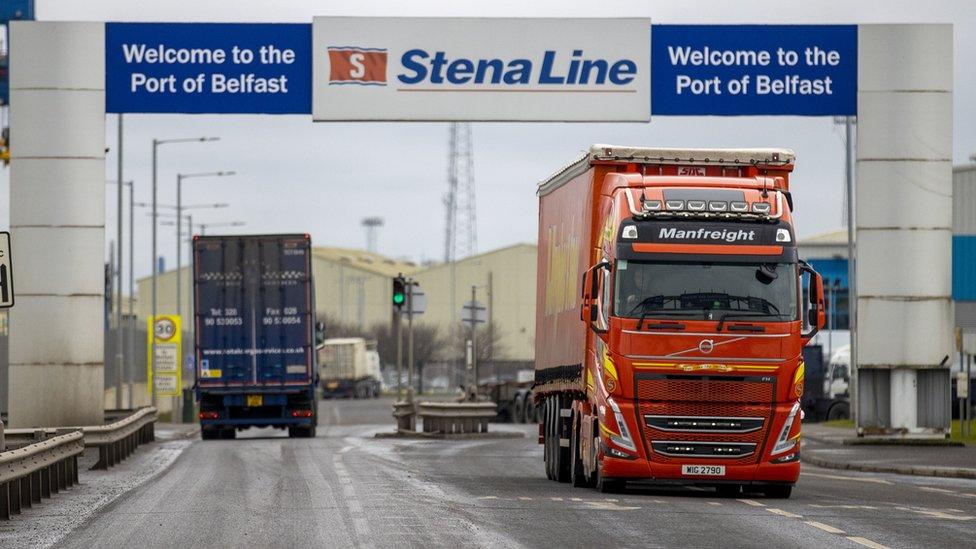
Goods lorries travelling through Northern Ireland ports have been subject to checks since January 2021
No more 'Not available in Northern Ireland'?
The DUP deal includes the establishment of a new body, Intertrade UK, to promote trade within the UK.
It is modelled on Intertrade Ireland, external, a body jointly funded by Stormont and the Irish government to help small businesses develop cross-border markets on the island of Ireland.
Intertrade UK's remit will be to provide advice aimed at boosting trade between the UK's constituent parts.
That will include tackling the 'Not available in Northern Ireland' issue which can afflict online shoppers when they are trying to buy goods from other parts of the UK.
The issue pre-dates Brexit and is a regular annoyance to Northern Ireland consumers.
GB businesses will not be forced to sell to Northern Ireland, but they will be helped to tackle barriers making them to reluctant to send good across the Irish Sea.
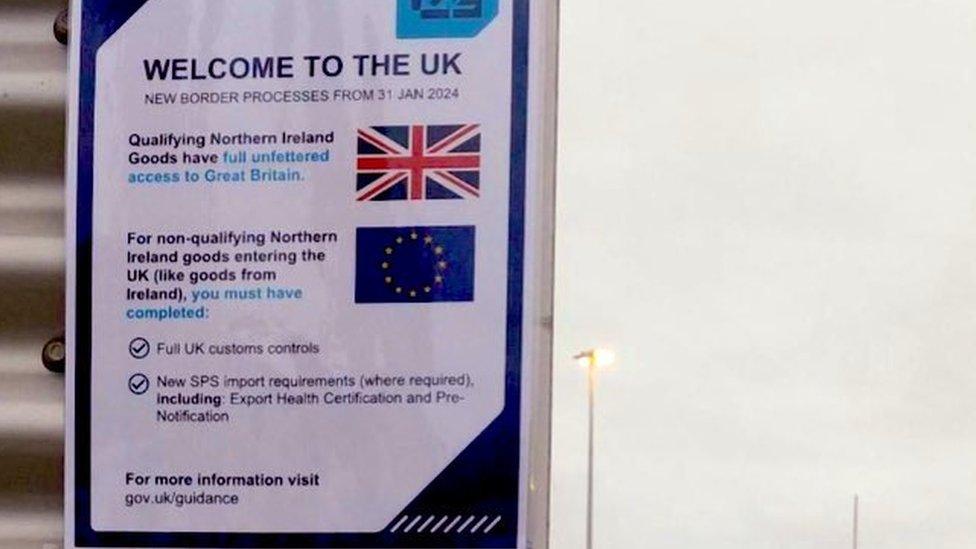
A sign with border process details at Holyhead
Scottish border control post plan scrapped
The government has also confirmed it will not build a border control post at Cairnryan.
The Scottish port is the main access point of Northern Ireland goods entering Great Britain.
A border control post had been planned in order to check Republic of Ireland goods being sent to Scotland via Northern Ireland ports.
That was politically controversial as it raised the prospect of Northern Ireland goods also being caught up in the checks.
The border control post plan has now been scrapped, but lorries from the Republic of Ireland will still be subject to spot checks.
New UK legislation to be screened for effects on NI
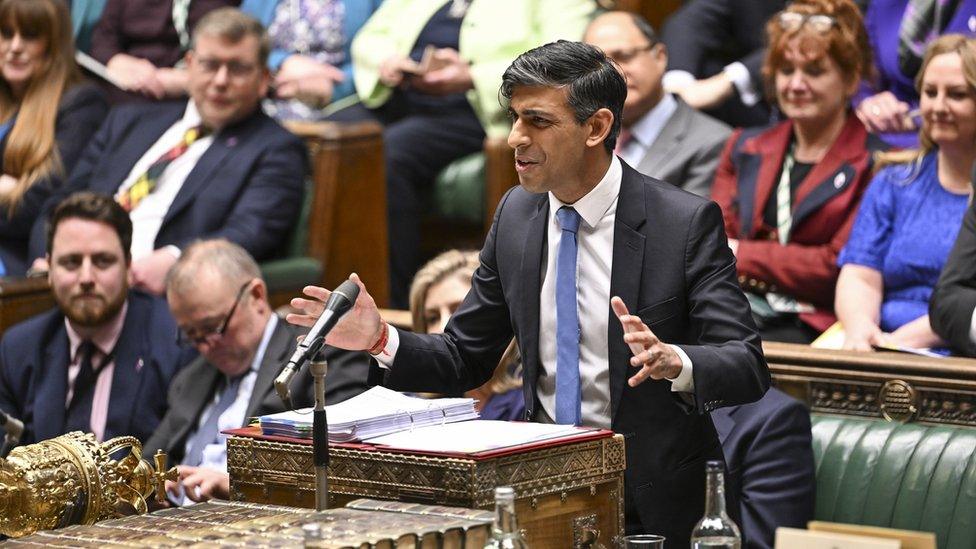
The DUP leader praised PM Rishi Sunak for his role in the deal
The complications posed by Brexit include how goods should be traded in cases where UK production techniques vary from EU standards.
Although there is little divergence at present, production rules could diverge significantly in the future.
The deal states that when UK government ministers are introducing new legislation, they will be compelled to tell Parliament if their Bill will have "significant adverse implications for Northern Ireland's place in the UK internal market".
If their Bill is expected to cause problems for trade between NI and GB, the UK government will then set out any measures it proposes to take to protect the internal market.
The government will also require public authorities to include "an explicit Internal Market Assessment" as part of their usual regulatory checks to identify any adverse impact on the UK's internal market.
It said guidance would make it clear that this could include "incentives for trade diversion or barriers to businesses placing goods on the market in any part of the UK".
Why did the DUP ask for these changes?
The DUP is the biggest unionist party at Stormont and believes Northern Ireland should remain an integral part of the UK.
But as Northern Ireland shares a land border with an EU member state - the Republic of Ireland - Brexit has complicated trading relationships.
Northern Ireland's Brexit deal, the Windsor Framework, keeps it inside the EU's single market for goods.
That prevented a post-Brexit trade border having to be erected between Northern Ireland and the Republic of Ireland.
However it has meant the introduction of checks and controls at Northern Ireland's ports on goods imported from GB - creating a trade border in the Irish Sea.
That angered unionists and led the DUP to boycott Northern Ireland's power-sharing government for the past two years.
On Monday night, DUP leader Sir Jeffrey Donaldson won the support of his party's executive to return to Stormont on the basis of the deal, subject to the legislation being passed at Westminster.
Related topics
- Published31 January 2024
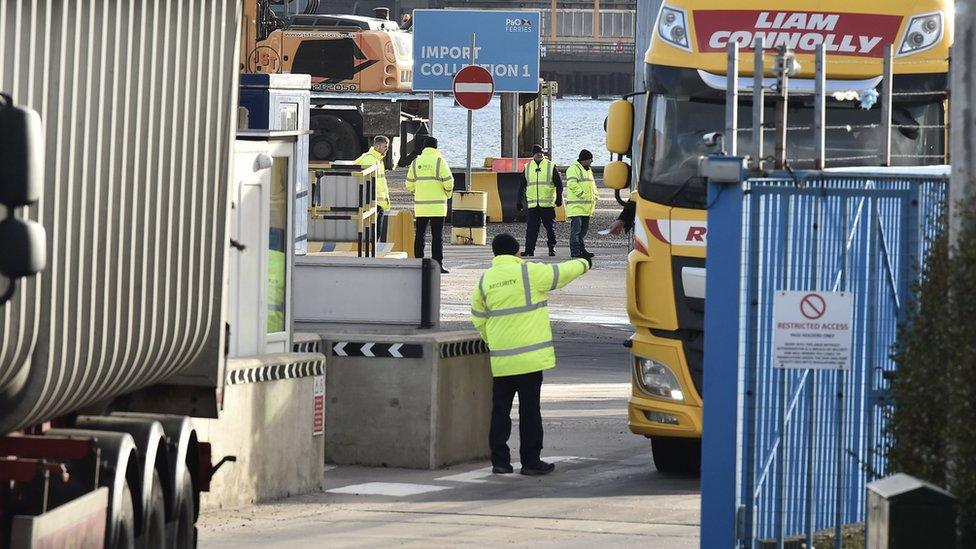
- Published31 January 2024
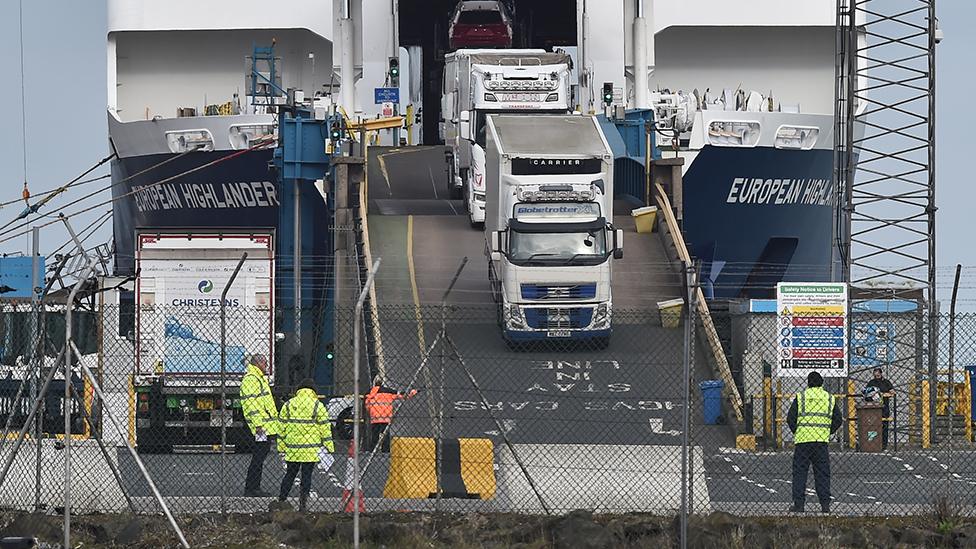
- Published31 January 2024
